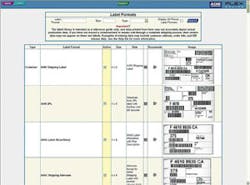Revstone Inplements SaaS Program at Latest Acquisition, Aiming to Improve Performance and Increases Profits
In 2009, Grede Industries sold its Vassar, MI, foundry to Revstone as the company continued to grow its Cast Metals group, specifically the MetaVation Division.
Revstone is a holding company formed in 2008 to invest in industrial and consumer markets, with metalcasting as one of its focus segments. Along with foundries and diecasters, it owns interests in forging, machining, tooling, fabricating, and assembly operations that supply transportation, aerospace, energy, general industrial, medical, agriculture, and electronics and consumer markets
After taking over Vassar the new owners realized that the plant’s standard manufacturing processes and controls were lacking in day-to-day operations: no formal tracking of recipes used for castings, no way to create bills of materials, and no way to understand how much raw material was being consumed in operations. There was no management or shopfloor systems in place, either.
At Vassar, Revstone implemented the Plex Online system that was in place as the ERP at other MetaVation sites, as well as at 50 other operations it controls. According to Janice D’Amico, Revstone’s IT business applications manager, the solution would be effective not only in helping to manage the complexities of multi-site operations, but in controlling processes and improving performance on each individual shop floor.
Plex Online provided the Vassar foundry with meaningful, timely, comprehensive information needed for effective inventory management, production tracking, equipment maintenance, and quality monitoring and improvement. The program is fully integrated, so it helps to improve performance of virtually every production process.
The software — offered via the Software as a Service (SaaS) model — is hosted off-premises at secure data centers. Vassar supplies only basic internet connections and personal computers; there is no need for onsite maintenance.
At the foundry, raw materials arrive measured in pounds, but measurements must be converted to “pieces” as molds are cast. Plex Online’s “process router” allowes Vassar to track consumption of raw materials and addresses the difficulty of measuring them. It tracks raw materials and assigns barcode labels to molds.
The materials arrive at a single location where they are tracked as purchased components, labeled with barcodes, and routed to molds. At the molding machines as molds are loaded and poured, employees scan the labels and the machines correlate the materials’ weight to the unit of measures of the molds. This process also helps with inventory control, cost tracking, and delivery times.
Plex Online is also able to track the precise raw material combinations used for each mold. Managers receive detailed records of raw material consumption, in real time, at each pour. Plex partner Kors Engineering developed PLC-integration for the foundry’s melt deck to track accurate consumption of each mold. The data can be analyzed and used by management to monitor and control the environment in order to optimize production, understand exact material consumption, and create the highest quality molds.
The Plex Online implementation has improved the Vassar foundry’s performance in several categories, thanks to real-time, accurate data on inventory consumption, and reduction in raw material inventories. Many manual steps have been replaced with automated barcode processes, reducing operating labor requirements by half. The foundry has accurate, real-time information that it needs to minimize scrap and improve throughput, and it continues to explore ways to use Plex Online to improve operations and profitability.
After the launch, the foundry reported annual operating cost savings of $145,000, and it achieved its first year-end profit in 10 years. Vassar also recorded a 456% ROI in the first year of its SaaS implementation.
